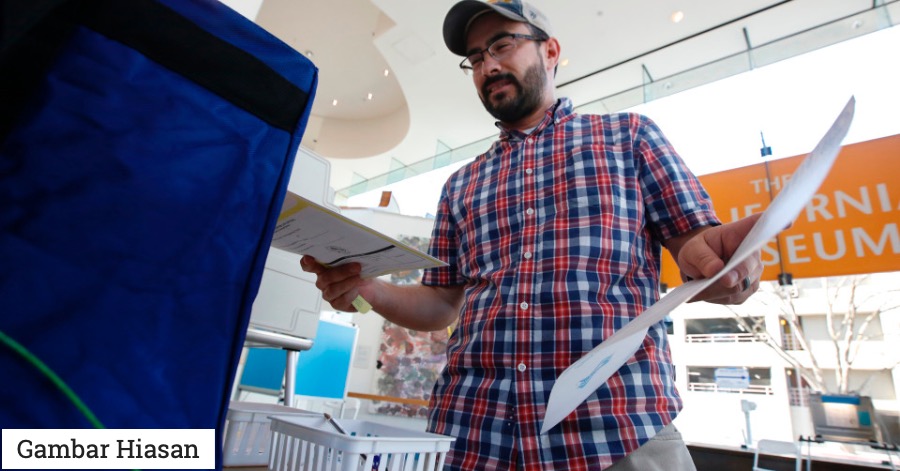WASHINGTON, March 4 (Bernama) — Voters of 14 US states are casting ballots for their preferred candidate on “Super Tuesday” for the 2020 presidential election.
Sitting President Donald Trump, who is facing no major challenges in the Republican Party, is expected to win the GOP primaries, while on the Democratic side there are still five vying for the party’s nomination to challenge the incumbent.
The Democratic primaries are drawing nationwide attention as 1,357 pledged delegates to the Democratic National Convention (DNC) in July, or a third of the total, are up for grabs on Tuesday.
Besides the 14 states, American Samoa is caucusing while Democrats living overseas is starting a primary.
After caucuses and primaries in four early voting states in February, Senator Bernie Sanders of Vermont is currently leading in the Democratic field with 60 pledged delegates to the DNC, followed by former Vice President Joe Biden, with 54.
In the southern state of Texas, which has 228 pledged delegates — the third-largest number in any state and the second largest on Super Tuesday, Samantha Lynn Deal told Xinhua that she is supporting Sanders, a champion of the progressive Medicare for All plan, a single-payer, national health insurance programme.
“Mostly because I really want an upheaval of the health care system,” Deal said. “I don’t believe that the system that we’re currently using is going to work for the future. And I think that we need a major change.”
A moderate political veteran, Biden is on the rise in the Democratic primary after winning big in South Carolina, and his momentum has been boosted by a growing number of big-name endorsements.
Darrell West, director of governance studies at Brookings Institution, a Washington DC-based think tank, told Xinhua that “Biden is that guy” if “people are looking for safe, experienced option.”
At a polling place in Arlington, Virginia on Tuesday, Max Blake told Xinhua that he is aware of an ongoing tussle between the Democratic Party’s progressive candidates and the moderate bloc but he believes they will eventually unite for the race against Trump.
Besides Biden and Sanders, former New York City Mayor Michael Bloomberg, who is making ballot debut, Senator Elizabeth Warren of Massachusetts, and US Congresswoman Tulsi Gabbard of Hawaii are also in the Democratic primary race.
Trump, speaking to reporters at the White House before leaving for an event, said that he does not care who the Democratic nominee is when asked if he would rather face Sanders or Biden.
“Whoever it is, we will take them on,” said the Republican, who also traded barbs with Bloomberg on Twitter Tuesday morning.
To win the Democratic presidential nomination, a candidate must receive support from a majority of all the 3,979 pledged delegates on the first ballot of the DNC, which DNC officials said must be at least 1,991 delegates.
In other words, the Super Tuesday primaries will not determine who is going to become the Democratic presidential nominee. However, Super Tuesday could offer indicators for how the rest of the primaries might play out.
“This is the first time that a large number of states in different regions of the country all vote on the same day,” Clay Ramsay, a senior research associate at the Center for International and Security Studies at University of Maryland, told Xinhua.
“The four previous state caucuses and primaries each had their own local flavor. They can’t tell us what Democrats across America are thinking,” Ramsay said. “Super Tuesday will get us much closer to seeing that.”
Julian Zelizer, a professor of history and public affairs at Princeton University, tweeted that he believes the day is important for the candidates to prove their electability.
“Will Biden recreate the SC (South Carolina) coalition? Is the Sanders coalition stronger than the ‘too far to the left’ attacks? Can Warren win enough delegates to demonstrate her viability? Is Bloomberg’s media-centered campaign more than hot air?” Zelizer wrote.
Polls close between 7pm and 8 pm local time, depending on the state.
Source : BERNAMA




Leave a Comment